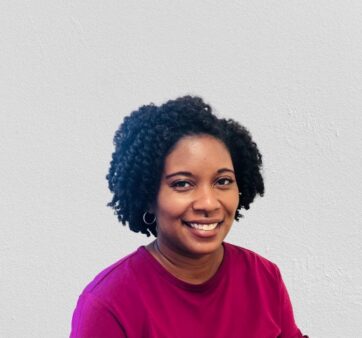CBIS Spotlight: Richelle Walker
Categories: ACBIS Insider, Professionals
By Monique R. Pappadis
 Richelle Walker, OTD, MOT, OTR/L, CBIS is an occupational therapist at University of Pittsburgh Medical Center (UPMC) Williamsport. She serves patients with a variety of diagnoses in inpatient rehabilitation. The rehabilitation unit is Joint Commission certified in brain injury and stroke rehabilitation. Richelle serves as the brain injury program coordinator where she has participated in the initial development of the program. Additionally, as the program coordinator, she monitors compliance of performance measures that the facility has selected to continually improve the program and maintain Joint Commission certification. She also assists in designing and implementing interdisciplinary educational competencies specific to brain injury.
Richelle Walker, OTD, MOT, OTR/L, CBIS is an occupational therapist at University of Pittsburgh Medical Center (UPMC) Williamsport. She serves patients with a variety of diagnoses in inpatient rehabilitation. The rehabilitation unit is Joint Commission certified in brain injury and stroke rehabilitation. Richelle serves as the brain injury program coordinator where she has participated in the initial development of the program. Additionally, as the program coordinator, she monitors compliance of performance measures that the facility has selected to continually improve the program and maintain Joint Commission certification. She also assists in designing and implementing interdisciplinary educational competencies specific to brain injury.
Richelle graduated with a master’s degree in occupational therapy in 2002. She has worked in a variety of settings, serving both pediatrics and adults throughout her career. Most of her time as a practitioner has been spent in inpatient rehabilitation where she has been involved in brain injury committees and program development. She obtained a doctorate in occupational therapy in 2021 in which her evidence-based capstone project focused educating interdisciplinary rehabilitation professionals on addressing vision deficits in the acquired brain injury population.
What made you want to have a CBIS certification and how has it played a role in your career as an OT?
I had a strong interest in serving patients recovering from brain injuries early on in my career. I always sought to learn more about maximizing function for patients whose lives are likely changed for their remaining years. I also wanted to have all the tools to best serve my patients.
Occupational therapists use a holistic approach to treatment by looking at how deficits affect the whole person and their ability to carry out meaningful occupations within different contexts. Having a CBIS certification is another way that I can address the whole person. Through the initial certification, I not only learned key approaches to working with such individuals, but I also learned how to enhance the education that I provide to patients and families about this diagnosis. I learned how to advocate for my patients through providing resources for follow up or funding they may not have known about. The required continuing education has allowed me to constantly grow in my practice with such patients so that I may continue to use a holistic approach.
Having a CBIS certification has also allowed me to have a role in program development within the facility that I currently work. As the brain injury program coordinator, I advocate for a program that improves overall patient outcomes. I feel this is best accomplished through promoting a transdisciplinary approach to address the needs of patients recovering from brain injury whether through education or performance measures that are completed across disciplines.
What have you seen in your organization as it pertains to younger incidences of stroke?
In recent years, I have seen an increase of younger stroke victims of various etiologies. Many of the younger incidences of stroke that I have seen at this facility have been related to complications from other illnesses, procedures or due to lifestyle choices such as substance abuse. I have also been treating younger patients who have suffered a stroke after contracting COVID-19.
Are there differences in treatment approaches when working with younger stroke patients?
Treatment approaches do differ when comparing younger versus older stroke patients. Providing client-centered treatment requires you to look at individual needs such as life roles and how their new deficits affect those roles. In younger stroke patients, treatment goals may center around restoring function for returning to work or taking care of children. Establishing new habits or routines may also be important as younger stroke patients may have to assume new ways to maintain roles such as providing for their families. Having a stroke is devastating at any age. However, severe deficits in younger stroke patients can have an immense financial and emotional impact on the patient and their families. Treatment may need to be more creative to help these patients return to previous activities.
